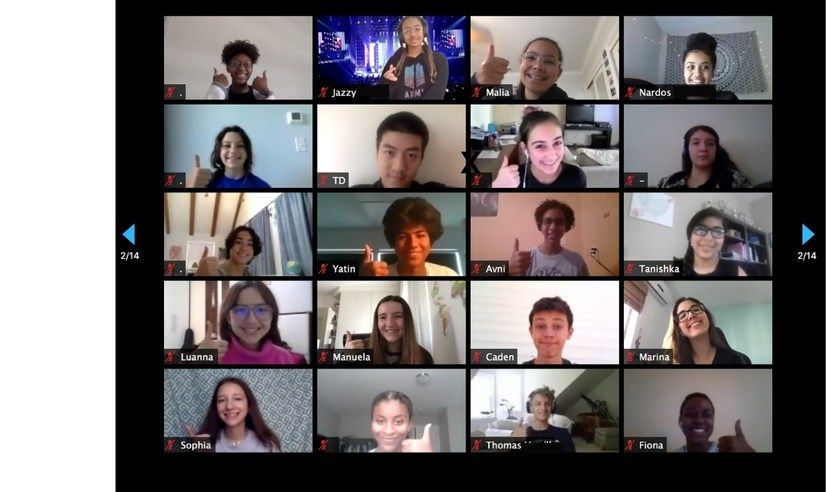Archive for the ‘education’ category: Page 120
Oct 16, 2020
Pilot: A virtual agent that can negotiate with humans
Posted by Saúl Morales Rodriguéz in categories: business, computing, education, law, neuroscience
Negotiations are a central part of many human interactions, ranging from business discussions and legal proceedings to conversations with vendors at local markets. Researchers specialized in economics, psychology, and more recently, computer science have conducted several studies aimed at better understanding how humans negotiate with one another in the hope of shedding light on some of the dynamics of human decision-making and enabling the development of machines that can replicate these dynamics.
A research team at the University of Southern California has been exploring the possibility of building automated systems that can negotiate with humans. In a paper pre-published on arXiv and set to be presented at the IJCAI conference, they presented a virtual agent based on a framework called IAGO (Interactive Arbitration Guide Online), which can negotiate with humans in a three-round negotiation task. This virtual agent, called Pilot, is one of the finalists of the IJCAI conference’s global negotiation challenge (ANAC).
“Recently, researchers realized the potential applications of building automated systems that can negotiate with humans,” Kushal Chawla, one of the researchers who carried out the study, told TechXplore. “These intelligent assistants can be really useful to augment current techniques for training people to have stronger social skills. Examples include teaching business students to negotiate for successful deals or lawyers to accurately assess settlement rates in legal proceedings.”
Oct 15, 2020
Cars Will Soon Be Able to Sense and React to Your Emotions
Posted by Kelvin Dafiaghor in categories: education, media & arts, robotics/AI, transportation

Except someone—or, rather, something— can hear: your car. Hearing your angry words, aggressive tone, and raised voice, and seeing your furrowed brow, the onboard computer goes into “soothe” mode, as it’s been programmed to do when it detects that you’re angry. It plays relaxing music at just the right volume, releases a puff of light lavender-scented essential oil, and maybe even says some meditative quotes to calm you down.
What do you think—creepy? Helpful? Awesome? Weird? Would you actually calm down, or get even more angry that a car is telling you what to do?
Continue reading “Cars Will Soon Be Able to Sense and React to Your Emotions” »
Oct 15, 2020
Australlite: There have been lots of posts about SpaceX StarLink starting services in Australia
Posted by Muhammad Furqan in categories: education, food, government, health, internet, satellites, security
In 2016, I proposed LEO HTS Mega Constellation a viable solution for Australia’s broadband national coverage. I have been doing research on these constellations right from the beginning and they are inevitable!
Introduction
Utilizing the announced Lower Earth Orbit (LEO) satellites constellations of OneWeb, SpaceX, LeoSat & Samsung to provide high speed connectivity to entire Australian continent with performance better than fiber networks. This project can eliminate high cost NBN roll out to scattered populations and will considerably improve disaster management. Providing high speed connectivity for mobile communication, internet, high resolution TV broadcast as well as utilizing technologies like IoT & Cloud for improvement in security, education, health, agriculture, livestock farming, mineral resources, wildlife, and environment without any coverage black-spots. This network will not require any infrastructure installations and will help the Government to generate revenues by issuing spectrum licenses to local as well as foreign investors for providing services directly to the end user.
Oct 14, 2020
Shenzhen’s tech hub status turbocharged by Beijing’s plan to introduce digital yuan, big data protections
Posted by Derick Lee in categories: education, energy, finance
Jointly issued by the Chinese Communist Party and the State Council on Sunday, the measures targeting the tech sector are an important part of Beijing’s 2020–2025 plan for the city, which include pilot reforms in areas from finance and energy to education and transport.
Beijing’s plan doubles down on hopes that Shenzhen will become a global leader in technology and finance and a showcase for Xi’s vision of an ideal Chinese society.
Oct 14, 2020
Roger Penrose, Reinhard Genzel and Andrea Ghez bag the Nobel Prize for Physics
Posted by Kelvin Dafiaghor in categories: cosmology, education, physics
Congratulations from Ogba Educational Clinic.
The 2020 Nobel Prize for Physics has been awarded to Roger Penrose, Reinhard Genzel and Andrea Ghez for their work on black holes.
The prize is worth 10 million Swedish krona (about $1.1 million) and half goes to Penrose, with Genzel and Ghez sharing the other half of the prize.
Continue reading “Roger Penrose, Reinhard Genzel and Andrea Ghez bag the Nobel Prize for Physics” »
Oct 7, 2020
Middle school student achieved nuclear fusion in his family playroom
Posted by Quinn Sena in categories: education, nuclear energy, particle physics

O,.o.
Hours before his 13th birthday, Jackson Oswalt (USA) fused together two deuterium atoms using a reactor he had built in the playroom of his family home in Memphis, Tennessee.
Continue reading “Middle school student achieved nuclear fusion in his family playroom” »
Oct 7, 2020
The Coding School, IBM Quantum Provide Free Quantum Education to 5,000 Students Around the World
Posted by Malak Trabelsi Loeb in categories: computing, education, quantum physics
LOS ANGELES, Oct. 6, 2020 /PRNewswire/ — The Coding School is collaborating with IBM Quantum to offer a first-of-its-kind quantum computing course for 5,000 high school students and above, designed to make quantum education globally accessible and to provide high-quality virtual STEM education. To ensure an equitable future quantum workforce, the course is free. Students can apply here.















